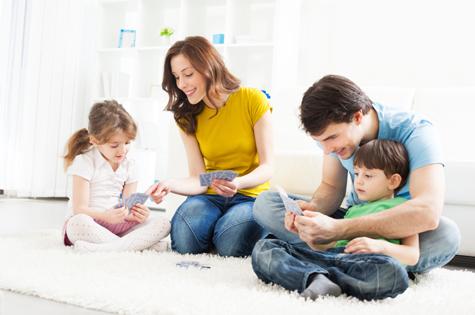It seems that every facet of modern parenting is fraught with anxiety, from finding a nutritious yet palatable and eco-friendly gluten-free breakfast cereal in the morning, to choosing the proper bedtime, and the proper way to enforce it, at night.
We live in an age of endless determined parental expectations, where signing up for pottery class and making the football team assume inflated importance, and well-meaning mothers and fathers are told that the consequences of not taking it all seriously could be a lifetime of psychic damage to their children. No wonder there is such a pervasive feeling of guilt, as parents are shadowed by the perpetual question: ‘Am I doing this right?’
But is all of this guilt and fear of failure really good for families?
A few revolutionaries say “No!” This philosophy can be roughly summed up under the title of the Slow Parenting Movement, an effort to inject a bit of leisure and joy into what has become a competitive race to produce perfect kids.
Carl Honoré, author of Under Pressure: Rescuing Our Children from the Culture of Hyper-parenting, believes that children deserve “plenty of time and space to explore the world on their own terms,” rather than a constant barrage of activities and contrived stimulation.
Childrearing “is not a project; it’s a journey. Slow parenting is about giving kids lots of love and attention with no conditions attached.”
Slow Parenting, like the Slow Food Movement, is about taking the time to do things right. It’s about the thoroughly pre-modern notion of quality over quantity.
Another proponent of this method, Tom Hodgkinson encourages parents to take personal moments regularly to nap, read a book, or have a drink, and in the meantime allow children to entertain themselves.
In his book The Idle Parent Hodgkinson describes how such practices both help to preserve parental sanity and foster the development of autonomy and creative play in children. This is not an abdication of parental responsibility. It is, rather, a shift from the belief that parents should shoulder all of the responsibility for a child’s wellbeing, towards a renewed trust in the capacities of the child. Kids can be wonderfully imaginative and surprisingly self-sufficient if they’re allowed to be.
Here are three practical suggestions to get started on your Slow Parenting track.
1. Just stay home
Instead of planning a weekend around trips to the zoo and the museum, try spending time together in the peaceful seclusion of the house. Read together, cook together, play a board game. Not only is this a cheaper alternative, it also allows both parents and kids to let loose without fear of getting lost in a crowd. And the bliss of being unoccupied can make for surprisingly good family bonding time.
2. Play with rubbish
Forget about the latest recommended software-supplemented learning toy. Any old cardboard box can be transformed into a spaceship or a time machine. An empty egg-carton makes a great skeleton for all sorts of animal craft projects. Don’t be too hasty to throw things away. An adult’s trash can be a kid’s wonder.
3. Encourage independence
Why enrol your young child in art class, when you can let him sit with a box of coloured pencils and a fresh sketchbook, developing his talents at his own pace? Make sure to be available to your kids for guidance and encouragement, but also give them the space and resources to let them learn their way.








 Agree (0)
Agree (0) Disagree (
Disagree (










__small.png)










